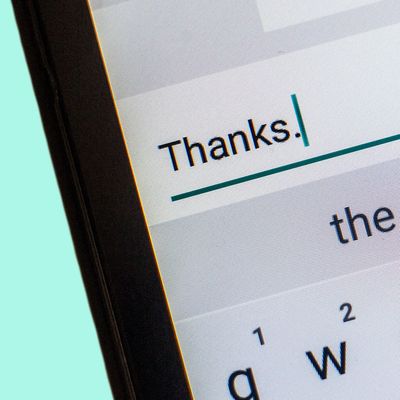
Most people with two thumbs and a heart know that there is a right way to end a text, and there is a wrong way. Done typing all the letters you need to type? Cool, now hit send. Maybe add a question mark first if the situation calls for one, or ellipses if you want to spice things up. Just, for the love of God, do not type out a period, go-to punctuation mark of jerks everywhere.
If you must, do it with the knowledge that you’re likely coming off as angry and insincere, a perception long held by most of your fellow texters and finally backed up by research earlier this year. The angry part seems somewhat intuitive — periods can convey finality in a pissy, “I’m done with this conversation” kind of way — but insincerity feels a little harder to grasp. If anything, it almost seems like the opposite: A period is deliberate in a way that the punctuation-less trail-off is not.
But in a recent post on the Conversation, communications researcher Lauren Collister offered up one possibility: The period’s insincerity — which, according to the research thus far, is confined to texts — comes down to code-switching, or altering the way we talk depending on the situation. If you’re unfamiliar with the concept, consider how you speak to your boss versus your roommate versus your mom. It happens in writing, too — an email fired off to your best friend about weekend plans is likely going to look a lot different than one you send to follow up after a networking event.
More broadly, Collister noted, those two mediums — speaking and writing — have also had codes of their own, though the division has blurred somewhat in recent years. “Scholars originally investigated situational code-switching in spoken language because spoken language was used in both casual and formal settings,” she wrote, while writing had “a level of formality because it was associated with permanence in books and written documents. However, now that text messaging and social media have given their users an outlet for casual written language, differences between writing styles can be seen.”
A text that ends in a period, then, might just be a case of the wrong place at the wrong time: It rankles because it doesn’t fit the context. “It’s perceived as overly formal,” Collister argued, “just like using formal spoken language in a casual setting like a bar.” Both seem weird, off-putting, like you don’t really feel what you’re saying — which means, paradoxically, that you’re probably better off ending your text with an exclamation point, even if the enthusiasm isn’t really there.




